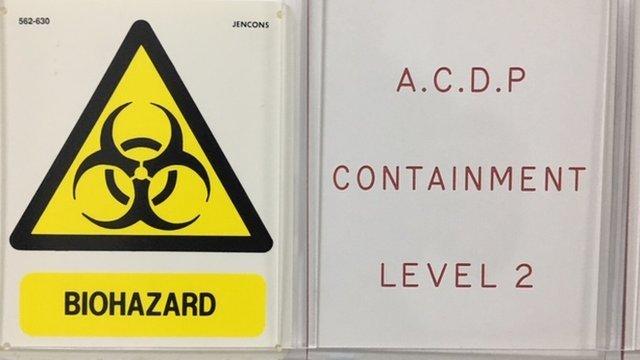Porton Down weapons-test volunteers deserve medals, veterans say
- Published
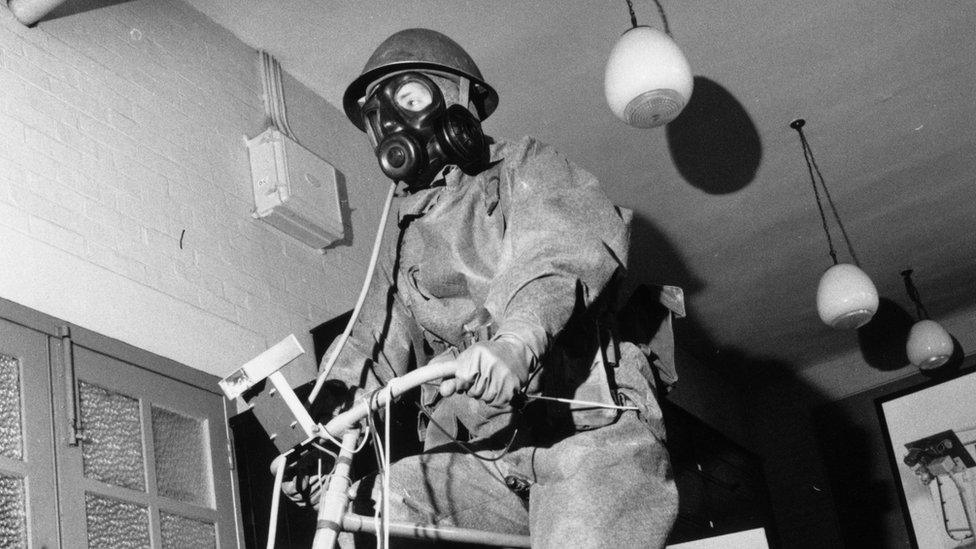
Tests were carried out at Porton Down over decades - here a soldier tests PPE in 1964 by pedalling on an exercise bike
Veterans who took part in tests at a top-secret laboratory have called for medals to recognise their sacrifice.
Ian Foulkes, who was exposed to nerve agent sarin at Porton Down, made a renewed plea after nuclear test veterans fought for medals and won.
Scientists at the secluded Wiltshire-based facility carry out research into chemical weapons and deadly diseases, such as Ebola, plague and anthrax.
A government official said there was an "established process" for medal claims.
Mr Foulkes, 58, from Wiltshire, who served in the Royal Signals, began a search for other veterans who took part in tests at Porton Down in a letter published in the Royal British Legion's magazine.
The 10 former service personnel who responded underwent tests from the 1950s to the 1990s, with some trialling biological agents. Iain Shore, from Sussex, said the total number of volunteers is unknown.
Mr Foulkes was among those who won a payout and apology in 2008, external, but he feels those who were involved in the tests have become "a forgotten group, with many veterans almost embarrassed to talk about attending".
He wrote in his letter: "Their contribution to the science of protecting our service personnel cannot and should not be underestimated."
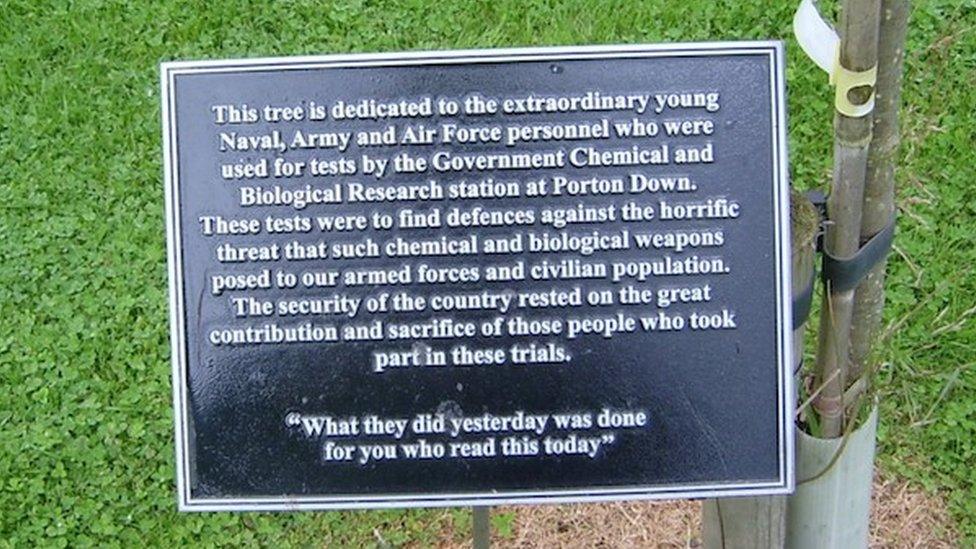
A plaque was unveiled at the National Memorial Arboretum after volunteers exposed to sarin won compensation
Mr Foulkes first called for a medal in 2015 but received a government reply that service alone did not "constitute justification for medallic recognition".
He renewed his plea after veterans who took part in British nuclear tests were told they would receive the honour. The announcement followed years of campaigning for atomic test survivors to be recognised.
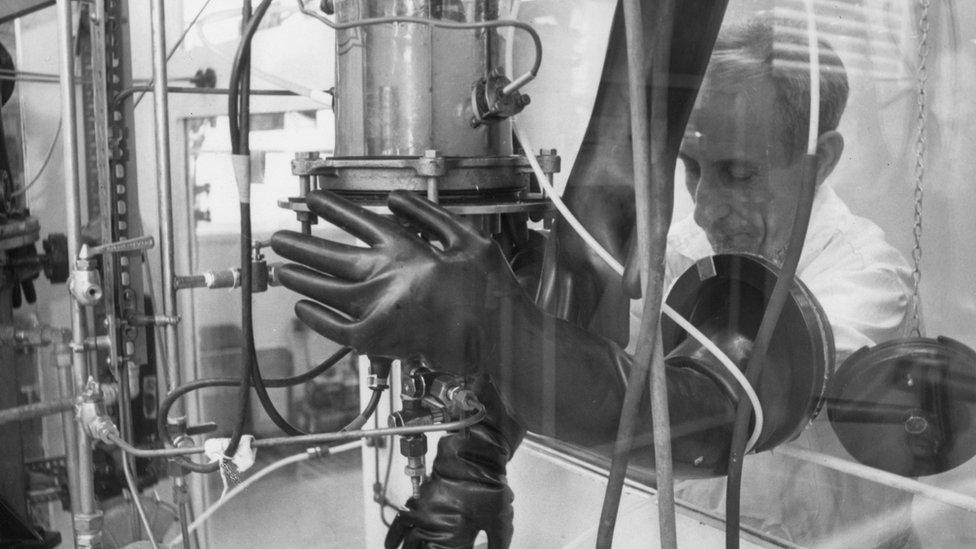
Ex-soldiers have said nobody knew what scientists at Porton Down were working on
Ex-soldier Mr Shore, 66, from Eastbourne, said he received cash for taking part in tests in 1976 to investigate the effects of substances such as liquid cannabis and LSD. The drugs were administered before he undertook tasks such as driving.
He said a medal was about recognition, self-belief and "restoration of self-worth".
"There are a lot of ex-service people who are at the bottom of life's pile and a lot who are on the streets," he said.
"There are a lot with mental health issues and undiagnosed PTSD."
He said recognition would have a "beneficial effect on people's wellbeing".
He added: "It means somebody actually cares enough to say 'well done'."

Inside Porton Down
Porton Down was built in 1916, just outside Salisbury in Wiltshire
It is also known as the Ministry of Defence's Defence Science and Technology Laboratory (DSTL)
It is highly secretive, under armed guard and is very hard to get into
Everyone who works in this facility has to be security cleared or "developed vetted" - their personal backgrounds investigated and cleared to make sure they do not present a security risk
The laboratories are where some of the country's top scientists carry out research into the world's most dangerous pathogens - diseases that can kill us
Ebola, plague and anthrax are among the life-threatening diseases under study at this secluded base
It is also where scientists analysed samples confirming that a Novichok nerve agent had been used to poison former Russian spy Sergei Skripal and his daughter

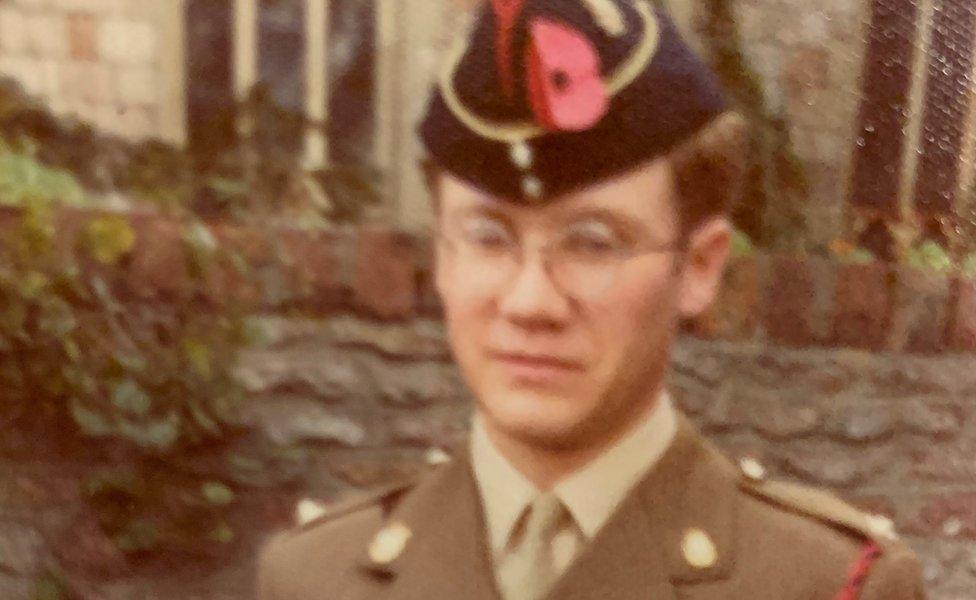
Iain Shore had been in the army for three years when he volunteered to take part in tests in 1976 at the age of 20
Darren Mallalieu, 55, who served in the army, navy and air force, said his colleagues warned him not to take part, but he participated for extra pay.
"I'm so glad the lads who did nuclear testing got what they deserved, but we are no different," said Mr Mallalieu.
"Nuclear warfare and radiation is horrendous. Biological and chemical warfare is evil. We were guinea pigs. We deserve recognition. It's about time the government held their hands up and admitted it."
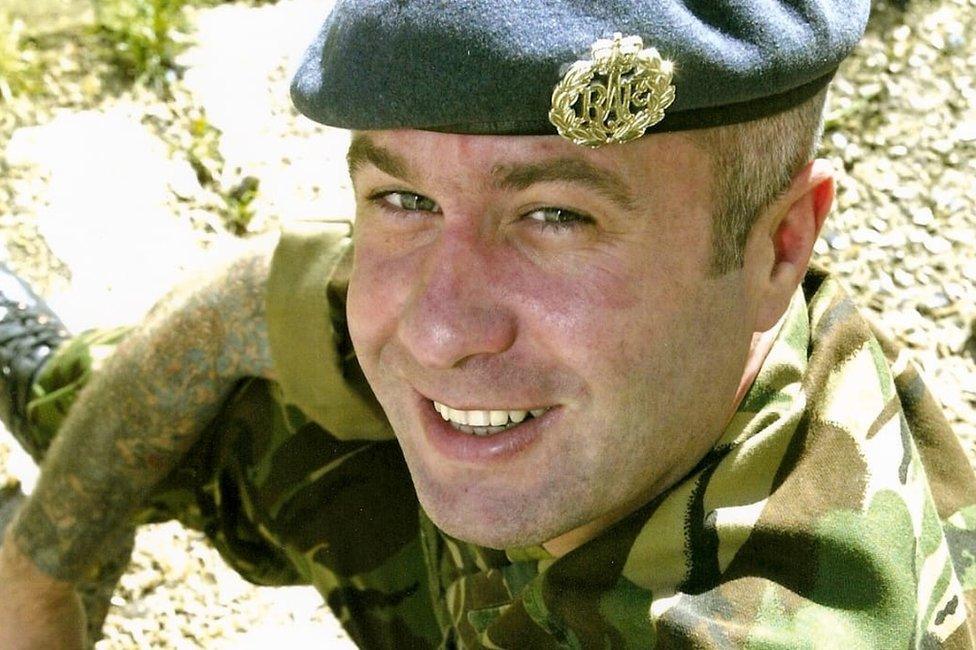
Darren Mallalieu said he took part in tests even though his colleagues warned him not to do it
A government spokesperson said: "There is a well-established process in place for the approval of historic military medals claims and a recommendation about whether to retrospectively award medals is made by an independent committee.
"The Nuclear Test Medal honours the significant contribution of veterans and civilian staff from across the Commonwealth who participated in Britain's nuclear testing programme."

Follow BBC South East on Facebook, external, on Twitter, external, and on Instagram, external. Send your story ideas to southeasttoday@bbc.co.uk, external.
Related topics
- Published13 June 2019
